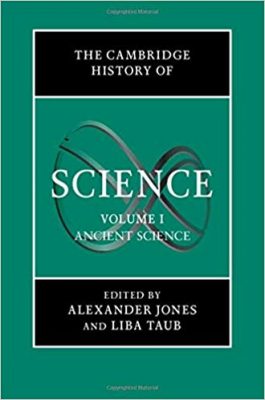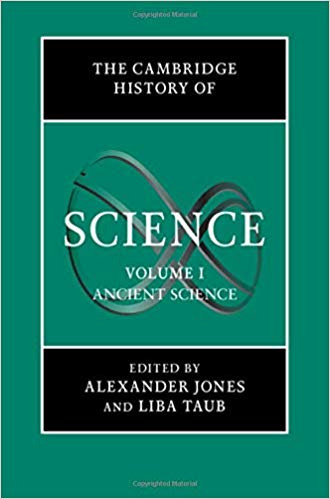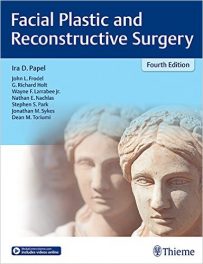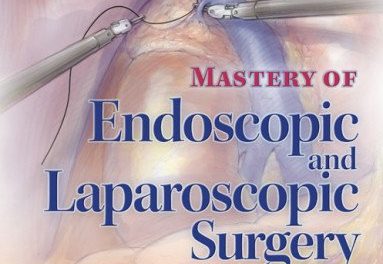 Editors: Alexander Jones and Liba Taub
Editors: Alexander Jones and Liba Taub
Publisher: Cambridge University Press – 642 pages
Book Review by: Sonu Chandiram
This volume is part of the highly respected Cambridge History of Science series consisting of eight volumes – the first four arranged chronologically from antiquity through the eighteenth century, and the next four volumes were organized thematically covering the nineteenth and twentieth centuries
Volume 1 – Ancient Science
Volume 2 – Medieval Science
Volume 3 – Early Modern Science
Volume 4 – Eighteenth-Century Science
Volume 5 – Modern Physical and Mathematical Science
Volume 6 – Modern Biological and Earth Sciences
Volume 7 – Modern Social Sciences
Volume 8 – Modern Science in National and International Context
The series is devoted to the history of science, medicine, and mathematics of the Old World in antiquity. Organized by topic and culture, its essays by distinguished scholars offer the most comprehensive and up-to-date history of ancient science currently available.
This volume on ancient science reveals the diversity of goals, contexts, and accomplishments in the study of nature in Mesopotamia, Egypt, Greece, Rome, China and India. Intended to provide a balanced and inclusive treatment of the ancient world, contributors consider scientific, medical and mathematical learning in the cultures associated with the ancient world.
Twenty-eight specialists on countries mentioned above, and in particular on various aspects of science, medicine, and mathematics of the Old World in antiquity, who currently reside in 12 countries – Canada, China, Denmark, Finland, France, Germany, India, Japan, New Zealand, Russia, the United Kingdom, and the United States – authored the 30 chapters of this book shown below to provide you an overview of the contents of this book. They’re primarily, editors, historians lecturers, professors, researchers, scientists, teachers and writers on their fields.
- Part I – Mesopotamia
- Science and Ancient Mesopotamia
- Babylonian Medicine as a Discip0line
- Mesopotamian Mathematics
- Babylonians and Assyrian Astral Science
- Part II – Egypt
- He Cultural Context of (Mathematical) Experts in Egypt
- Egyptian Medicine
- Egyptian Calendars and Astronomy
- Egyptian Mathematics
- Part III – Greek and Greco-Roman Culture
- Physical and Cosmological Thought Before Aristotle
- Aristotle: An Overview
- Aristotle: Physical Theory
- Aristotle and the Origins of Zoology
- Botany
- Science After Aristotle: Hellenistic and Roman Science
- Late Antiquity: Science in the Philosophical Schools
- Medicine in Early and Classical Greece
- Hellenistic and Roman Medicine
- Greek Mathematics
- Greco-Roman Astronomy and Astrology
- Greek and Greco-Roman Geography
- Greek Optics
- Harmonics
- Greek Mechanics
- Greco-Roman Alchemy
- Part IV – India
- Astronomy and Astrology in India
- Mathematics in Early India (1000 BCE to 1000 CE)
- Indian Medicine and Ayurveda
- Part V – China
- Mathematical Knowledge and Practices from Early Imperial China and the Tang Dynasty
- Medicine and Healing in Han China
- Chinese Astronomy in the Early Imperial: A Brief Outline
The editors and authors of this book primarily used textual evidence in the form to writings in tracing the principal scientific traditions of the Old World in antiquity and piecing together the major scientific discoveries of that period in history.
Besides textual evidence, the editors and authors also used archaeological, material and visual artifacts in constructing this history of ancient science.
In sum, this book of almost 650 pages provides adequate coverage of the subjects outlined in the chapters. Each author has used his or her own approach in writing about a particular subject or topic, and has not followed particular writing guidelines set by the editors. Some approaches are descriptive, others are narrative. Some writings contain personal opinions of the authors based on their experiences and insight gathered, while others contain a whole lot of facts and no opinion, leaving it to the readers to draw his or her own perspective. All this makes this book a good read; one that is educational, instructive and mind-broadening.
Editors:
Alexander Jones is Leon Levy Director Professor of the Exact Sciences in Antiquity at the Institute for the Study of the Ancient World at New York University and author of A Portable Cosmos: Revealing the Antikythera Mechanism, Scientific Wonder of the Ancient World.
Liba Taub is Director of the Whipple Museum of the History of Science and Philosophy of Science at University of Cambridge. She is the author of Ptolemy’s Universe: The Natural Philosophical and Ethical Foundations of Ptolemy’s Astronomy (1993), Ancient Meteorology (2003), Aetna and the Moon: Explaining Nature in Ancient Greece and Rome (2008) and Science Writing in Greco-Roman Antiquity (2017).







